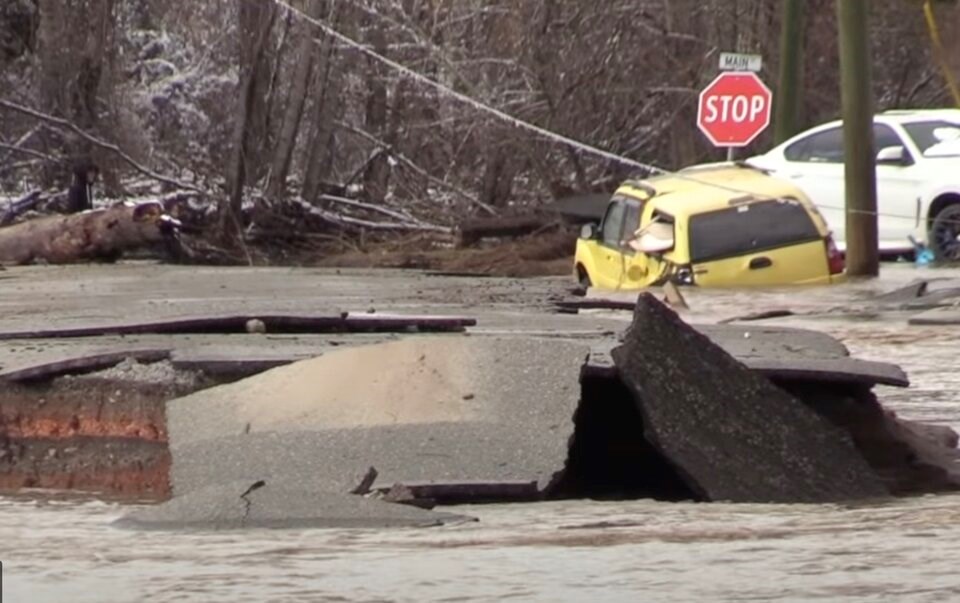As world delegates assemble in Baku, Azerbaijan, for the 2024 United Nations (UN) Climate Change Conference, the perceptions of Canadians and Americans on environmental issues have become more polarized.
In our two-country survey, just over six in 10 Canadians (61 per cent, up one point ) say global warming is a fact and is mostly caused by emissions from vehicles and industrial facilities. Fewer Canadians either look at climate change as a fact caused by natural changes (25 per cent, down two points) or as a theory that has not yet been proven (10 per cent, up two points). It is remarkable that after 16 months of relentless focus on the carbon tax on the part of the Conservative Party, the views of Canadians on its overarching theme have barely moved.
The situation is different in the United States as residents experience the last weeks of the Biden administration. Just over half of Americans (51 per cent, down nine points ) think climate change is a fact and is mostly caused by emissions from vehicles and industrial facilities. There is no change in the proportion of residents of the United States who call climate change an unproven theory (12 per cent), and a rise among those who think it is a fact that can be blamed on natural changes (27 per cent, up six points).
For 63 per cent of Canadians (unchanged), climate change is currently a “major crisis.” In the U.S., the results for this question dropped from 60 per cent in 2022 to 55 per cent now.
While practically three in four Americans who voted for the Democratic nominee, U.S. Vice-President Kamala Harris, in this month’s presidential election (74 per cent) call climate change a “major crisis,” this view is shared by only 38 per cent of those who cast a ballot for Republican Donald Trump. A similar polarization is observed in Canada. More than seven in 10 Canadians who voted for the Liberal Party or the New Democratic Party (NDP) in 2021 (73 per cent and 76 per cent respectively) think climate change is a “major crisis.” Only 42 per cent of Conservative supporters concur.
When asked about who should be doing more to deal with issues related to climate change that are happening or impacting people directly now, Canadians and Americans express roughly the same views on governments (64 per cent in Canada and 62 per cent in the United States) and individuals and consumers (55 per cent in Canada and 58 per cent in the United States). Canadians are significantly more likely to believe that companies and corporations have a role to play (71 per cent) than their American counterparts (63 per cent).
Looking into the future, majorities of residents in the two countries also feel more action is required from consumers (57 per cent in Canada and 58 per cent in the U.S.), companies and corporations (68 per cent in Canada and 63 per cent in the U.S.) and governments (69 per cent in Canada and 63 per cent in the U.S.) to manage issues related to climate change that may happen or impact people directly later.
When Canadians and Americans are asked if they would be willing to pay higher taxes to adequately address seven issues, the same proportion of respondents on each side of the 49th parallel (55 per cent) answer affirmatively on climate change. In the United States, it is second from the bottom (transit improvements is the lowest priority at 51 per cent). In Canada, climate change is second from the top (education is barely ahead, at 56 per cent).
The next two years will feature discussions about free trade and energy co-operation between Canada and the United States. At this point, our views on what to do about climate change are not particularly compatible. Americans remain more skeptical about it than Canadians, but residents of each country are equally willing to pay higher taxes to address it.
On the issue of governments spending money, Canadians are reacting more negatively than Americans. In the United States, in spite of the “tax relief” message that usually permeates Republican campaigns, willingness to spend more to adequately deal with homelessness and schools is decidedly higher than in Canada. With a federal election expected in the next 12 months, Canadians appear more suspicious about all taxes—not just the “carbon” one.
Results are based on an online survey conducted from Nov. 8-10, 2024, among 1,000 adults in Canada and 1,001 adults in the United States. The data has been statistically weighted according to Canadian census figures for age, gender and region in each country. The margin of error—which measures sample variability—is plus or minus 3.1 percentage points, 19 times out of 20, for each country.




